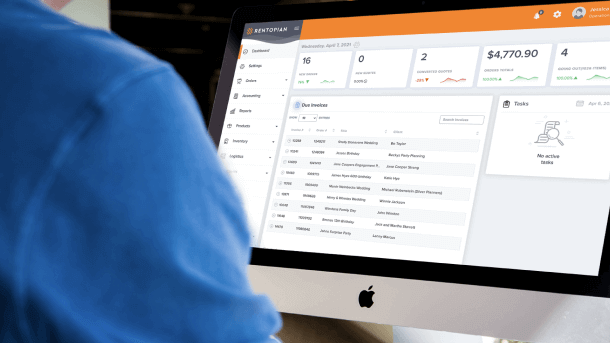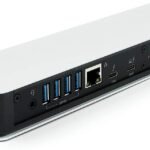In the digital age, technology has revolutionized the way businesses operate, and the rental industry is no exception.
Whether you’re managing equipment, vehicles, properties, or any other rental assets, embracing online rental software can significantly streamline your operations, enhance customer experience, and boost your bottom line.
This comprehensive guide will explore the benefits of online rental software and provide insights into choosing the right solution for your business.
Understanding Online Rental Software
Online rental software, also known as rental management software or rental ERP (Enterprise Resource Planning) software, is a comprehensive solution designed to automate and streamline various aspects of rental businesses.
From inventory management and reservation systems to customer relationship management and billing, these software platforms, such as Rentopian, offer a wide range of features tailored to the unique needs of rental companies.
Benefits of Online Rental Software
- Streamlined Operations: Online rental software automates routine tasks such as inventory tracking, reservation management, and billing, freeing up time for your team to focus on more strategic activities.
- Improved Efficiency: By digitizing processes and eliminating manual paperwork, online rental software reduces the risk of errors and delays, allowing you to serve customers more efficiently.
- Enhanced Customer Experience: With features like online booking portals, self-service options, and automated reminders, rental software enhances the overall customer experience, leading to higher satisfaction and loyalty.
- Better Inventory Management: Advanced inventory tracking capabilities help you monitor stock levels, track asset utilization, and optimize inventory turnover, minimizing the risk of stockouts or excess inventory.
- Integrated Financial Management: Many rental software solutions offer built-in accounting and financial management features, streamlining invoicing, payments, and financial reporting processes.
- Scalability: Whether you’re a small rental startup or a large enterprise, online rental software can scale with your business, accommodating growth and expansion without the need for major infrastructure changes.
- Data Insights: By centralizing data from various sources, rental software provides valuable insights into customer preferences, rental trends, and business performance, enabling informed decision-making.
Key Features to Look For
When selecting an online rental software solution for your business, it’s essential to consider your specific requirements and choose a platform that offers the features and functionality you need. Some key features to look for include:
- Inventory Management: Robust inventory tracking capabilities with support for barcode scanning, serial number tracking, and multiple warehouses.
- Reservation System: User-friendly reservation and booking system with real-time availability updates and flexible scheduling options.
- CRM Integration: Seamless integration with customer relationship management (CRM) software to track customer interactions, manage leads, and personalize marketing campaigns.
- Billing and Invoicing: Automated billing and invoicing features with support for customizable pricing structures, discounts, and late fees.
- Mobile Access: Mobile-friendly interfaces or dedicated mobile apps that enable employees to manage rentals, process payments, and access data on the go.
- Reporting and Analytics: Comprehensive reporting tools with customizable dashboards, performance metrics, and forecasting capabilities.
- Integration Capabilities: Ability to integrate with third-party tools and services such as accounting software, payment gateways, and eCommerce platforms.
Implementation Best Practices
Once you’ve selected an online rental software solution, successful implementation is crucial to maximizing its benefits. Here are some best practices to ensure a smooth transition:
- Thorough Training: Provide comprehensive training to your team to familiarize them with the new software and its features. Offer ongoing support to address any questions or concerns.
- Data Migration: Plan and execute a structured data migration process to transfer existing customer data, inventory records, and transaction history to the new system accurately.
- Customization and Configuration: Tailor the software to align with your business processes and workflows. Customize settings, templates, and user permissions as needed.
- Testing and Feedback: Conduct thorough testing of the software before fully deploying it in your operations. Gather feedback from users and make any necessary adjustments or refinements.
- Change Management: Communicate openly with your team about the reasons for implementing the new software and the benefits it will bring. Address any resistance to change and encourage buy-in from all stakeholders.
- Continuous Improvement: Regularly review and evaluate the performance of the software, identify areas for improvement, and implement updates or enhancements as needed.
Conclusion
In today’s competitive rental market, leveraging technology is essential for staying ahead of the curve and meeting customer expectations.
Online rental software offers a wide range of benefits, from streamlining operations and enhancing efficiency to improving customer experience and driving growth.
By choosing the right software solution and following best practices for implementation, you can streamline your rental business and position it for long-term success in the digital era.



